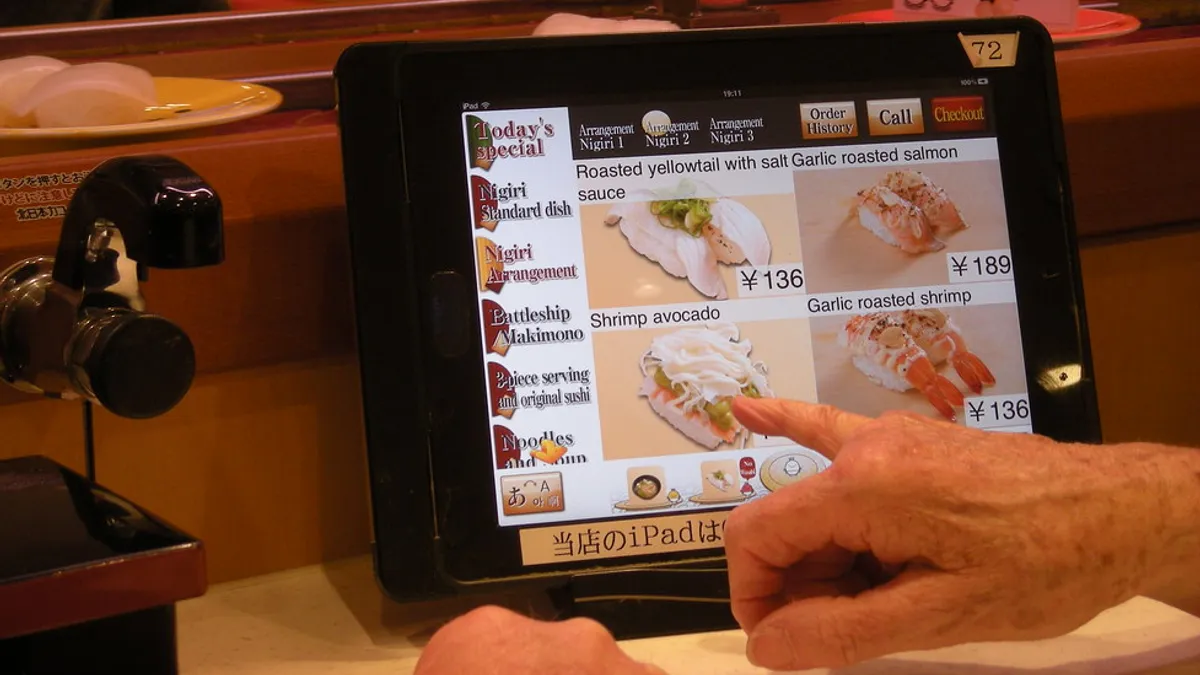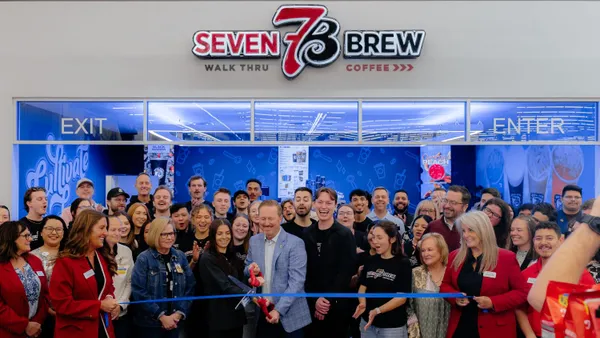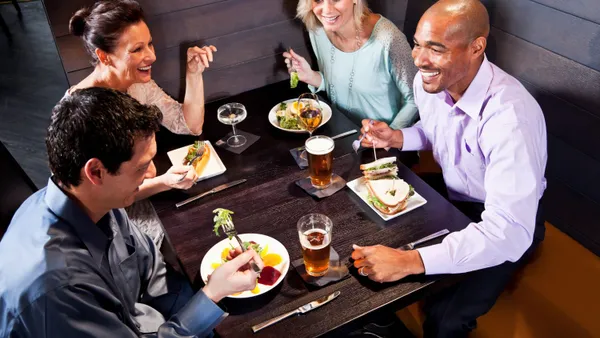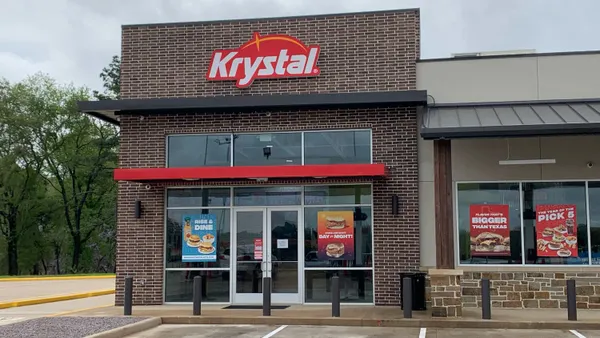Dive Brief:
- Tabletop devices improved average sales per party by 1% and corresponded to a profit boost of $1 million per month at a full-service casual restaurant chain, according to a study recently published in the peer-reviewed journal Management Science.
- Used to speed up customers' wait times and turnover, the tablet technology allowed customers to order drink refills, pay the check and, for a small fee, play games on the device. The technology rose sales per minute by roughly 11%, research found.
- Analyzing 2.6 million interactions at 66 restaurants over a two-year period, the study concluded that the technology compensates for slowness by some wait staff and thereby minimizes gaps in performance across servers, as low-ability waiters took advantage of the technology more frequently than high-ability waiters.
Dive Insight:
Applebee's, Olive Garden, Outback Steakhouse, and Chili's have all introduced tablets across their stores, while others, notably TGI Fridays and Chuck E. Cheese, have employed tablet tech for servers to directly send customer orders to the kitchen. BJ's Restaurants is testing pre-ordering via an app for its dine-in service at several of its stores this year.
Restaurants are experimenting with technology to speed up the dining experience, and, at times, to minimize human interaction. Their investments seems to be paying off, as early research indicates that the technology positively impacts customer satisfaction and increases check sizes. It can also free up servers from performing grunt work and can level out discrepancies in service quality, boosting tips for low-ability wait staff.
The unnamed chain in the Management Science study integrated tablets "in order to assist its waiters, as opposed to replacing them," but in the emergence of waiter-less restaurant models and in an industry facing rising labor costs, that may not always be the case.
However, chains may need to be conscious of retaining some human element to the casual dining experience, which research indicates has high value for customers. A 2018 poll of 1,500 consumers by the Culinary Visions Panel's Mindful Dining Initiative found 64% of millennials and Gen Z respondents said they "would love" for their restaurant server to call them by name, while research by Harvard Business School concluded that consumers derive greater pleasure from food which they have seen prepared themselves.
Any technology with internet connection also comes with the added risk of consumer data breaches, past incidents of which have rocked brands including Arby's and Chipotle. Experts advise restaurants to proactively think about cybersecurity when building up their plans, oversee network activity for abnormalities and use data encryption.
As well as investing in point-of-sale tech, some casual dining chains also reformed their store models in the face of new competition from the fast casual segment. Olive Garden has sped up its food preparation times while TGI Fridays invested in implementing open kitchens in certain stores, reconfiguring its menu and bolstering its take-out arm, introducing features that emulate fast casual competitors and others that differentiate from them.













